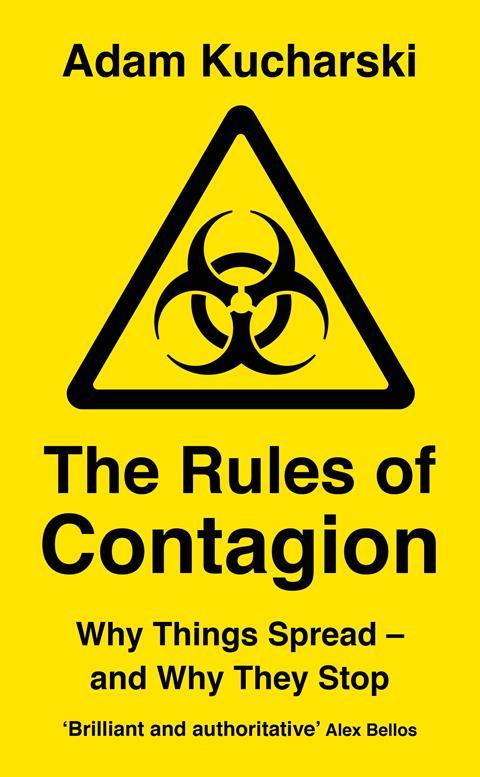Adam Kucharski
Wellcome Collection
2020 | 352pp | £12.99
ISBN 9781788160193

If there were a prize for the timeliest book, this one would have won it. The Rules of Contagion explains how things spread - pathogens included. Although the book comes out to the public right in the middle of a global pandemic, it was finished well before the Covid-19 outbreak. In any case, anything Adam Kucharski added about the disease would have been out of date as the epidemic is relentlessly going forward. Even so, his book sets the ground for readers to understand what is happening around the world right now, explaining how experts have come to understand contagion by studying it for over a century.
Kucharski -a professor at the London School of Hygiene and Tropical Medicine in the UK - has worked on the ebola epidemic, dengue fever and flu. He also did an internship with a bank when the 2008 financial crisis hit. As an epidemiologist his main interest is modelling, understanding patterns and predicting outbreaks. Although, as he remarks: ‘There is a saying in my field: “If you’ve seen one pandemic, you’ve seen… one pandemic.”’ That is to say, they all play out in a different ways.
Still, the principles of epidemiology can apply to all sorts of things. The book looks at connections between outbreaks of many kinds, from the obvious disease-related ones to others that the majority of people would not have imagined could be treated as epidemics: economic bubbles, computer viruses, online influence, gun violence, social behaviour, drug addiction, obesity, suicide… it even explains how internet games become viral (does the ice bucket challenge sound familiar?). There is some maths in the book, but that shouldn’t put readers off. No scientific background is needed to follow Kucharski as he does all the explanatory groundwork and successfully combines historical anecdotes with clear graphs and data.
Maybe not all of the topics treated in the book will interest readers in the first place, mainly because of its publication’s timing – right when people are looking for accessible information about the coronavirus pandemic. But I would advise readers not to come to this book with narrow expectations. It becomes clear that the universal relevance of epidemiology is striking. We need to consider the dynamic nature of outbreaks and take into account that gathering a wide number of datasets can shed light on the mechanisms of contagion. Kucharski quotes Virginia Woolf, who once said: ‘Truth is only to be had by laying together many varieties of error.’
Understanding contagion has reduced the number of deaths from infectious diseases - and probably from other reasons - by half in the past decades. While the current pandemic is flipping the world upside down, this book offers comfort in the form of anecdote and science.
This book features in our book club podcast, which you can listen to here.












No comments yet